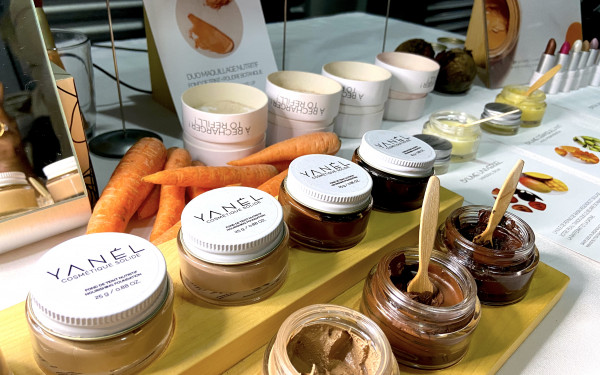John Molson Women in Leadership Look For Equality in Business
New Committee Wants to Promote Diversity in Leadership
Four out of ten businesses in Canada, France, Germany, the United States, Great Britain, Italy and Japan—also known as the Group of Seven—have no women in senior management positions.
The Grant Thornton International Business Report 2016, where the statistics come from, also revealed that women comprise just 22 per cent of all senior management positions in the G7. The greater the level in the corporate hierarchy, the fewer women are present. All of this despite women having a higher university graduation rate than men.
Out of those who do find themselves in senior management position, just seven per cent of women are CEOs in the G7—far lower than Australia and Oceania, where 22 per cent of women in senior management roles are CEOs.
This gender disparity was, in part, what led Jazna Rossi, a finance and international business student, and Serena Feeney, studying business technology management, to create the John Molson Women in Leadership committee.
“When back in Montreal, I saw a gap to fill regarding women’s leadership,” Rossi said. “I thought it’d be a good idea to start the education early at JMSB.”
The Canadian Reality
JMWL’s focus is to “raise awareness of gender inequality throughout the different levels of academia, with conferences and speaker panels, to engage students on the sustainable and systemic change needed to ultimately achieve equality in the workplace.”
Canadian studies have yielded similar conclusions to those about the G7. A 2015 provincially funded report from British Columbia said just 5.3 per cent of Canadian CEOs are female. Separate studies have concluded that the average female worker in Canada makes 82 cents for every dollar a male counterpart earns.
According to the BC report, female-owned enterprises represent $117 billion of economic activity in Canada. Yet when seeking funding, female entrepreneurs are far more likely than males to be asked for things like an appraisal of assets, cash flow projections, and personal financial statements.
Finding the Inspiration
The John Molson Women in Leadership’s founding was partially inspired by Rossi attending the Queen’s Women in Leadership Conference.
“Men and women have different styles when it comes to leadership and communication,” Feeney elaborated. “We want to educate students on those different styles and make sure they’re aware of the glass ceiling.”Grant Thornton’s research expanded on that difference in leadership styles. The report says that 42 per cent of women—compared to 32 per cent of men—viewed communication as an important attribute for good leaders.
The research included interviews with men and women in leadership positions. The men viewed communication as telling people about decisions being made. Women, on the other hand, viewed communication as more conversational and open, bringing others into the decision-making process. Men are seen as more traditional, authoritative leadership figures, while women tend to listen and delegate more.
Entering Conversations
One of the goals of JMWL is to prepare female students for boardroom meetings and negotiations where that leadership contrast might be prevalent.
“We don’t want women to be shy to ask for the same salary as their male counterparts,” Rossi said.
Another area of potential concern is the occurrence of business conversations at social events like golf rounds and happy hours. Feeney’s mother is a sales representative who felt she was missing out on important networking because she didn’t play golf. She took up the game so that she could be part of those casual chats on the course.
“Those social situations aren’t thought of, but they can make a big difference,” Feeney said.
“It can be something as simple as going for beers with the guys, and being absent from those discussions,” Rossi added.
JMWL hopes to educate everyone on these situations.
“We’re targeting men too, who don’t realize they are a part of the solution,” Rossi said.
As a young committee, the group’s goal this year is to become recognized by other students.
“Our first event is next week. It’s just an informal meet and greet,” Rossi said. “There’s going to be lots of giveaways. We want to gain feedback and have a conversation.”

web_900_513_90.jpg)



_1_600_375_90_s_c1.jpg)

